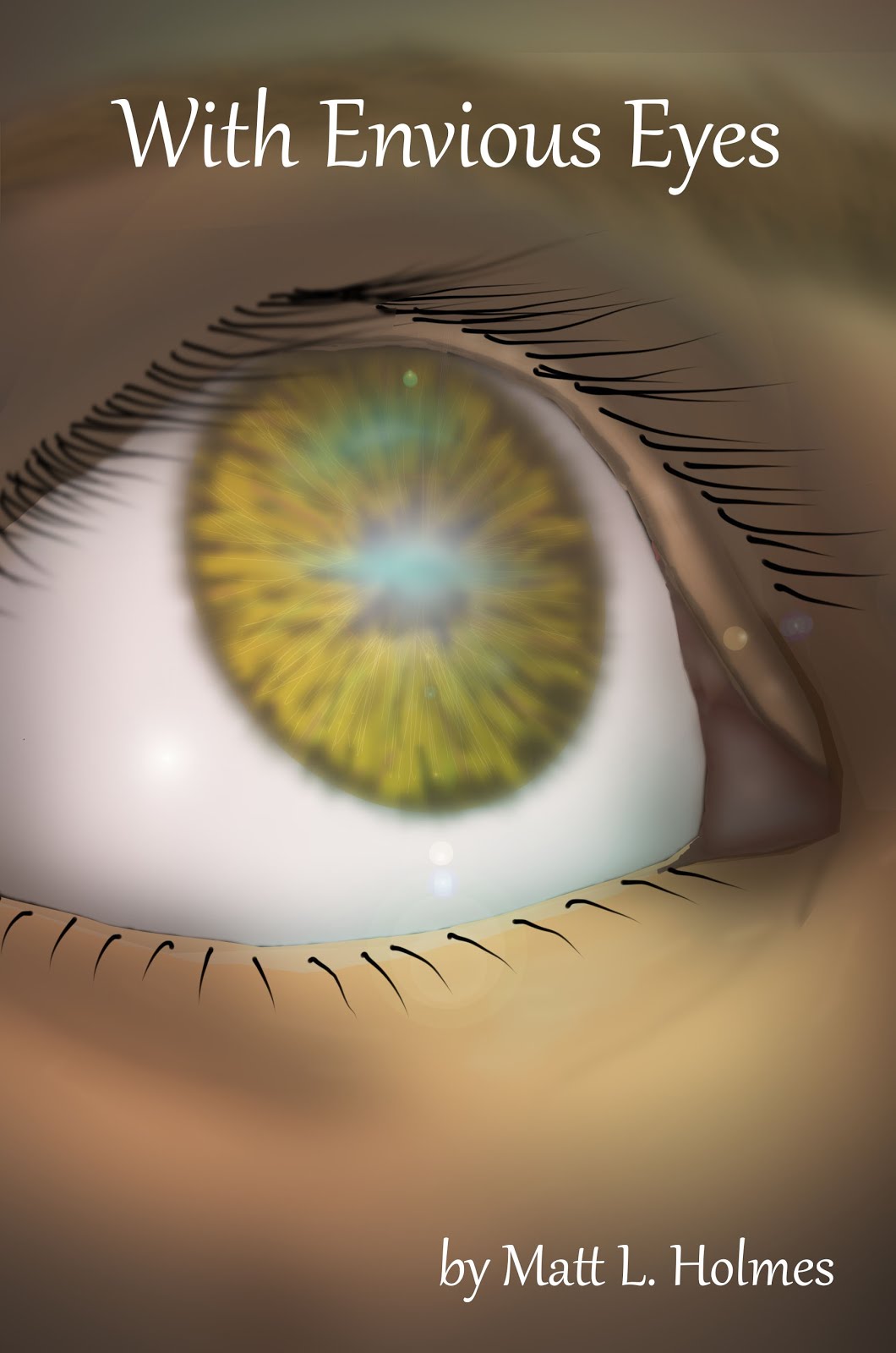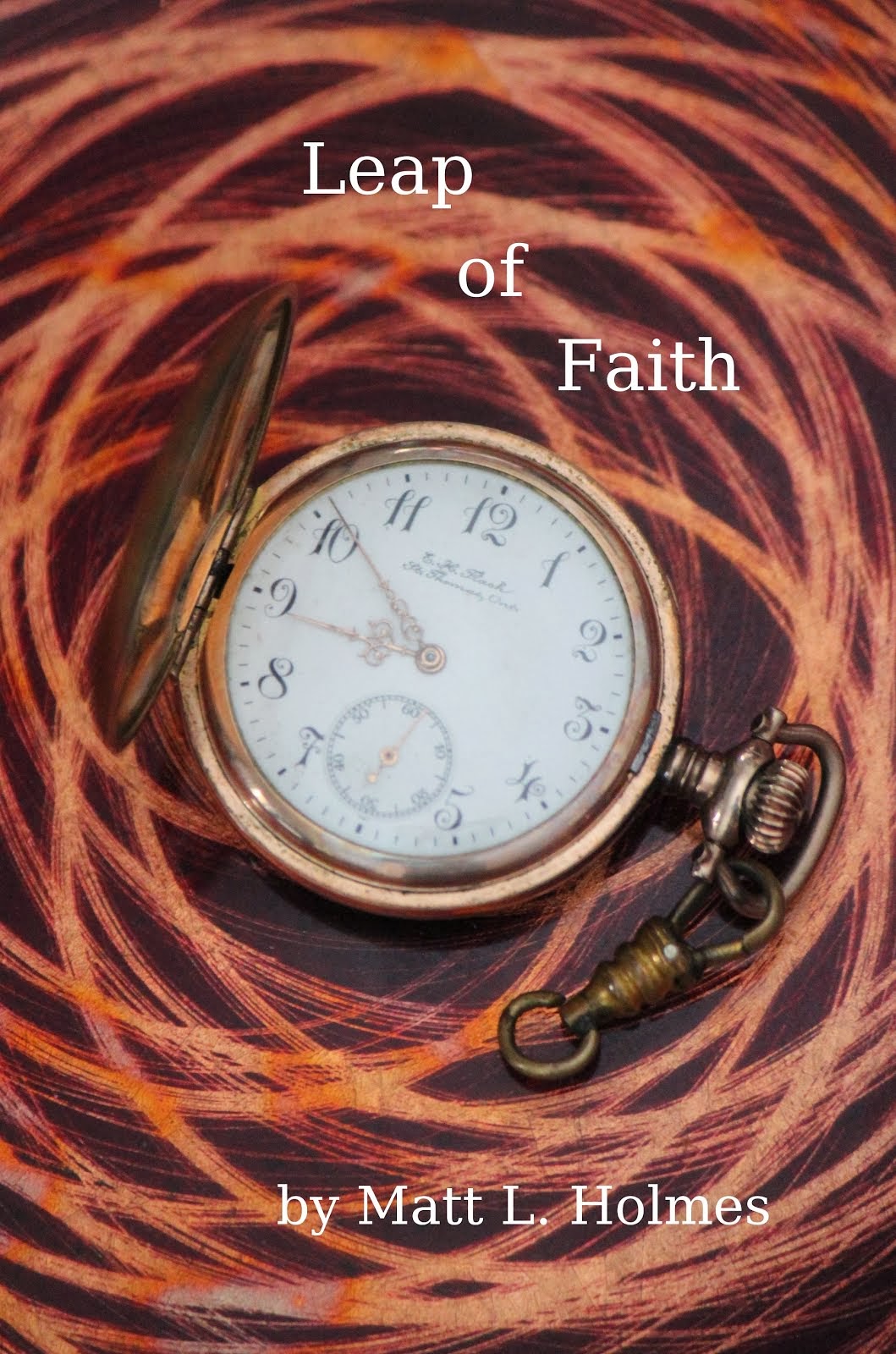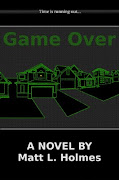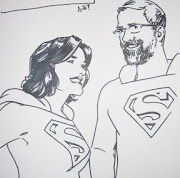(There are some Spoilers for the film below, so stop reading now if you want to go into the film as unspoiled as I was, and then come back afterwards and read on.)
I've been looking forward to this movie since before it existed or was even announced. Almost a decade ago, the film I Am Legend featuring Will Smith in a post-apocalyptic New York City showed a very quick glimpse of a combined Batman/Superman logo up on a building. This quickly spawned rumours that Warner Brothers was planning a full-length, live-action feature that would bring together the planet's two most recognizable superheroes. A World's Finest film, if you will. That fanboy wet dream turned out not to be true, though apparently there had been something in the works a few years earlier, before being abandoned. Meaning that it was nothing more than an in-joke stuck in there by the film-makers of I Am Legend.
(In the future, of course, it may appear to some to be prophetic, like the offhand reference to an at-the-time-fictional band called The Heaven Seventeen in A Clockwork Orange back in the 60s. In reality, of course, real-life Heaven 17 took their name from that scene in the film, so neither of them are actually much of a prediction. Unlike Back to the Future Part II getting the 1997 World Series winner right... hahaha, not really.)
Anyway, it's now 2016 and the movie Batman v Superman: Dawn of Justice is here. I've literally been counting down the days until its release, starting more than a year ago. But it hasn't been an exercise without any concern, considering my ambivalence toward the film's director, Zack Snyder. I've had very mixed feelings on his three previous comic book adaptations - 300, Watchmen and Man of Steel. Each of them had worked well on certain levels and failed miserably on others. Whereas I can always get solidly behind Christopher Nolan's first two Bat-flicks, Batman Begins and The Dark Knight (not so sure about The Dark Knight Rises), I had serious reservations about Snyder's work. Chief among those concerns was the fear that maybe he didn't quite understand some of the characters he was bringing to the screen. His Superman in Man of Steel didn't line up all that well with the one I've spent most of my life reading about, especially when it comes to the whole saving people thing. And there's a crucial scene during Rorschach's backstory in Watchmen that was completely blown in the movie, not to mention that in the comic there isn't actually any group called "the Watchmen" as the title of the 12-issue series refers to the quote, "Who watches the watchmen?" It's used symbolically in the comic title but literally in the movie. Arggh. And so I've been naturally worried about him taking on Superman once again, this time adding Batman and (it soon came out) Wonder Woman to the mix.
Now that I've had a chance to see the final product, I guess I'd have to say that my fears were both unfounded and justified, in different ways. Mostly unfounded, though. The movie's strengths definitely far outweigh its weaknesses, though it has its share of liabilities, to be sure. To get them out of the way first, I'd say that several of the minor characters were largely wasted (Perry White, Jenny Olsen, and to a lesser degree, Alfred Pennyworth); Lex Luthor's motivations were sometimes incomprehensible to me (he's worried about a super-powered hero he can't control so he creates a super-powered monster he has absolutely no way of controlling?); there's still an over-reliance at times on style-over-substance that's dogged Snyder's output so far; and many of the later scenes were so murkily-filmed that I could barely make out what was going on. Or maybe that was just the crappy 3-D effect, which I freely admit to hating (to get VIP reserved-seat opening weekend tickets, 3-D was our only option). And there are a few other issues of roughly the same importance, which is to say that it's far from perfect but there was nothing in it that came close to ruining my enjoyment of it (or Vicki's, for that matter).
Everything else, really, ranged somewhere between good and amazing, for me. Ben Affleck, Henry Cavill and Gal Gadot were outstanding as the three heroes. Bruce, Clark and Diana (the Holy Trinity of the DC Universe, for anyone not aware of that) were each uniquely defined, both in their civilian personalities and their more prevalent costumed ones. Even their fighting styles differed, with Batman as the down-and-dirty brawler who plans ahead and uses every advantage he can find, Superman as the aloof god who tries his best to stay above the fray because he knows he can break someone in half by sneezing on them, and Wonder Woman as the warrior-born goddess who actually smiles at one point as they're getting their asses handed to them by Doomsday. You can just feel how much she revels in epic battles against monsters, as if she were taking on Cerberus at the gates of Hell once again. I loved all three of them and felt a thrill every time they appeared on screen together, costumed or not. I just wish the fight scenes against Doomsday had been filmed better.
I loved that Lois and Clark were a couple and in love. And that Lois was shown as doing actual journalist work, though I could've done without the "girl hostage" positions they put her in.
I also thoroughly enjoyed all of the back-and-forth between Clark and Bruce that leads up to their title fight. Some critics have complained that it didn't make sense for them to fight, and yet all the explanation is right there on the screen. Batman witnessed firsthand the destruction that came from Superman's take-down of General Zod in Man of Steel (shown in an incredible opening sequence that recreated part of the previous film's "destruction porn" climax) and he's determined to keep that from ever happening again. If you think that's unrealistic, then you haven't been in an airport since 9/11 and seen just how much that whole experience has changed as a result of that one cataclysmic event. Overreaction seems to come with the territory, unfortunately. And for his part, Clark distrusts the vigilante justice that "the Bat from Gotham" is dishing out, exactly the sort of thing Superman has consciously refrained from indulging in, instead focusing on saving people (yay!) rather than punishing criminals. And of course Lex Luthor is working away in the background, pushing the two heroes toward a confrontation through various means. So I had no trouble believing they'd end up duking it out.
The fight itself is terrific, with Batman using green kryptonite to bring Kal-El down to his level so they can have an actual throw down of equals. Except, of course, that Bruce is by far the better fighter (because he has to be, sans super powers) and if nothing else, this at least delivers the surprisingly-satisfying spectacle of watching Snyder's above-it-all Superman get the crap beaten out of him. I was not the least bit disappointed in the Big Fight, personally. And no, I didn't expect it to last for most of the film's 2.5 hours, as apparently some folks did. Now that would be incredibly boring.
There's one aspect of the story that's stuck with me the most since we left the theatre, and that's Batman's dream sequences. I was relieved to see that the scenes shown in early trailers of Batman being held prisoner while soldiers kneel down before Superman turned out to be a scenario playing out in Bruce Wayne's brain as he slept. As I watched it in context on the big screen, I just assumed this was simply his subconscious mind giving free rein to his worst fear: Superman eventually goes bad and decides to take over the planet, and it's up to a resistance force led by Batman to try to bring him down. As the two of them face each other in an underground bunker controlled by the Man of Steel, with Batman in chains and his captor passing judgement on him, Clark makes some oblique reference to how "you [Bruce] didn't save her" and we're left to assume that, in this scenario, Bruce imagines that the woman Superman was in love with had died somehow and that's what turned him into a super-powered Hitler. That kind of makes a paranoid sort of sense, I guess. And anyway, it's just a dream, right?
However, there's a second dream sequence shown around the same time, that's much shorter and yet even more attention-grabbing in its bizarreness. In this one, an unidentified character appears to Bruce as he's sleeping and tells him that Lois is the key and that Bruce needs to listen to her this time. Or words to that effect (I need to see it again as it all flew by very quickly). Although the costume on this character is hard to make out, I almost immediately recognized him as the Flash. For fans of the TV show, this Flash looks a lot different than we're used to. The show features a costume straight out of the comics, whereas this interpretation was... something else. Anyway, after that brief episode with the strange man in red, Bruce wakes up and sees that the decryption process he'd been running has finished, and the plot moves on from there.
But I couldn't stop thinking about that image of the Flash giving Bruce some sort of obscure warning. I actually didn't understand its significance until I got home and started reading some of the reviews I'd avoided earlier. And in one of them, an explanation's given that I think is probably 100% correct. Basically, it goes like this: the Flash, who has the ability to move through time (as we've seen in the TV program and in hundreds of comics), has come back in time to either try to change what happened at the end of Batman and Superman's fight, or to ensure that it doesn't get changed. Not long after that scene in the Batcave, Bruce gets the better of Clark and is just about to kill or seriously wound him with a kryptonite-tipped spear when Lois arrives, hoping to stop the fight and keep either of them from killing the other. Women are so smart!
Anyway, what she says changes Bruce's mind, calming him down enough to listen to reason. Then the two heroes begin working together, and the first thing Bruce says is that he'll rescue Clark's mother (captured by Luthor's henchmen and given only an hour to live unless Clark kills the Bat) while Superman goes after Luthor. That decision, this theory goes, ties directly back to what Superman said in the bunker dream about Bruce not saving "her." But instead of it being Lois (the love interest) who was killed, it's actually his mother, Martha, that Kal-El was referring to. And so now it all comes together (time travel alert! some heads may explode): in one version of the timeline, Bruce wounds Superman with the spear and Martha dies when the hour is up and she hasn't been rescued by anyone. And that starts a sequence of events that leads to the bunker scene at some point in the future. (I'm glossing over a whole 'nother aspect of the bunker dream, which is that it clearly shows parademons from the planet Apokalips as well as an Omega-symbol burned into the ground, which means the god-like villain Darkseid has come to Earth. He'll undoubtedly be the big bad for the Justice League Part 1 movie that's due out next year, and yes, he's powerful enough to need six or seven heroes to fight.) In short, Flash is using time travel (of some sort) to make sure that Bruce does the right thing at the end of their big battle - though why he didn't just say "Don't stab Clark, dummy; save Martha Kent instead" who knows - so that that particular, grim future doesn't come to be.
Now I'll be the first to admit that, if that interpretation's correct, then it was very badly scripted or edited. For one thing, how is the audience supposed to know that the Flash can travel (or project dream warnings) through time, when the character hasn't even been introduced yet? Having said that, I feel a little stupid that I didn't realize what was going on, as a) I know a lot about the Flash, and b) I know that, in the series Crisis on Infinite Earths back in 1986, the Flash does something very similar when he moves back in time and tries to warn Batman about something that's coming. So I totally should've picked up on this, and maybe I would've on a second viewing. Regardless, this is one of the coolest bits I've ever seen in a comic book movie. It's the sort of thing you might find in comics occasionally because they assume they have at least some readers who'll invest the time and energy in working it all out without being spoon fed. I wouldn't be surprised if we get a scene in the JL movie that shows us the other half of the scene, which is the Flash recognizing that he needs to go back in time and warn Batman before the Big Fight or else the timeline's going to be changed by Darkseid somehow. Probably because the villain's conquest of Earth is much easier if there's a a beaten-down, disillusioned Man of Steel who wouldn't offer so much resistance. And if that's where this is all going, then it's pretty damned brilliant! And exactly the sort of thing I love most about comic stories (end time travel alert.)
As I've mentioned on Facebook, Batman v Superman: Dawn of Justice is unlike any other comic book movie I've seen before. That's both a plus and a minus, as it's servicing comic book fans like we've never been serviced before (Watchmen comes closest in that regard, I guess) but it's not hewing to the line established by a dozen or more Marvel films of the past decade. Those movies have been popular because they're good but also because they're comfortable and familiar and safe and inclusive in a way that Snyder's latest offering simply isn't. It's something very different, and I think that's at least part of the reason why the mainstream critics have taken such a harsh stance against it. They were expecting something a lot more fun, I imagine. That, and the fact that many of them hate Ben Affleck and love to see him fail.
For my money, though, this is a really good film that I'm already looking forward to seeing again, warts and all. It was truly a thrill-a-minute experience for this life-long comic book fan.
Subscribe to:
Post Comments (Atom)















No comments:
Post a Comment